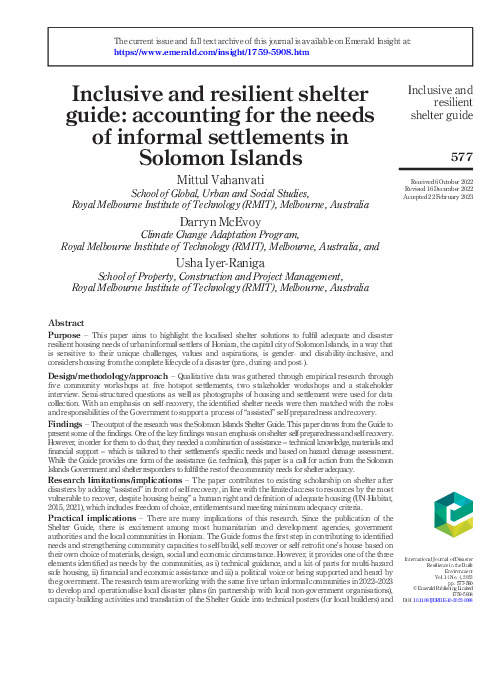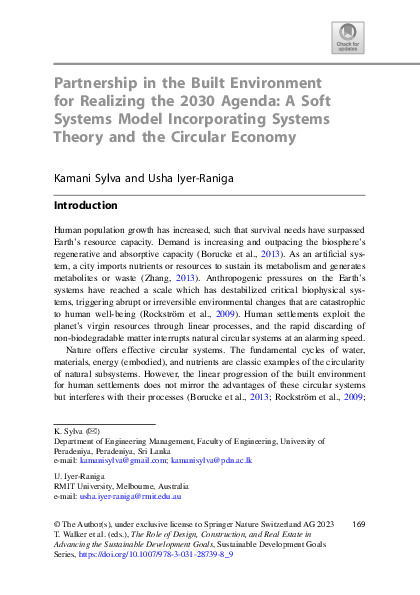Circular Economy Ownership Models: A view from South Africa Industry
Waste materials are not remanufactured, reused or recycled successfully. This study focuses on the South African industry's view on composite waste. The study found that cost reduction was a major driver and sustainer for recycling of composites. This project will develop appropriate national models for circular economy, it is important to reduce cost for recycling composites to encourage South African companies to transition towards circular economy. This case study focuses solely on composites. Apart from the general reuses of recycled composites in a circular economy, it is also a good strategy to avoid or reduce high energy demand linked with the production of raw materials. The study identified that a large number of companies in the South African industry experience a small percentage of composite production scrap material and that quality assurance of recyclate and product certification for the composites was a major barrier. With these key identifications, the SA industry can conduct future research on how to overcome this barrier and would ensure the use of materials more efficiently to reduce production costs. This project is replicable with the application of similar cost reduction methods in different countries. This project is scalable as it has not been implemented in South Africa yet as this is a purely theoretical study. Quality assurance of recyclate and to certify products incorporating recyclate composites, no consensus in the survey of composite manufacturing companies, government, local authority, product retailers/distributors, end users or third parties, should take responsibility for managing end-of-life product waste. Lack of QA for recyclate and product certification incorporating recyclate composites was a hindrance.
Three main successes:- 1. Circularity can be progressed in SA. 2. Identification of cost reduction as a driver and sustainer for CE. 3. Quality assurance for recyclate and product certification.
While this study is purely theoretical, it mainly identified the drivers and sustainers in CE for composite material users and also elements that would encourage the adoption of CE in South Africa.
This case study is directly related to the work of the OPN SBC programme.


